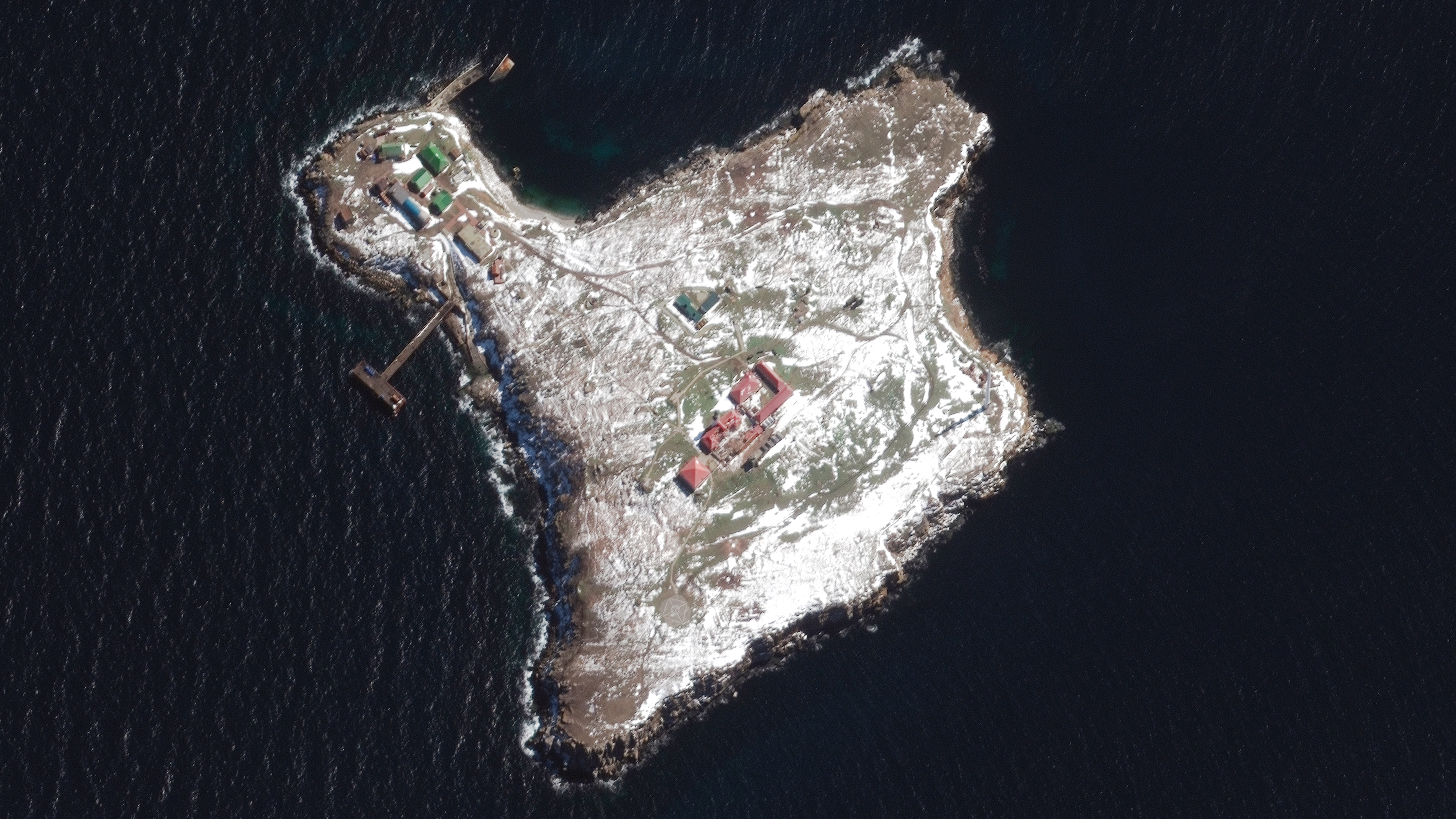Snake Island: why ‘speck of land’ in Black Sea is so important
Tiny Black Sea outpost could hold key to avoiding global food shortage

A free daily email with the biggest news stories of the day – and the best features from TheWeek.com
You are now subscribed
Your newsletter sign-up was successful
Just hours into the invasion of Ukraine, Russian troops on the flagship Moskva were memorably told to “go f*** yourself” by a determined Ukrainian voice on Snake Island.
Four months on, the “seemingly insignificant, rocky outcrop in the Black Sea” has earned “near-mythical status as a symbol of Ukrainian resistance”, The Telegraph said, gaining “new significance” as a “key to unlocking the looming global food shortage”.
The “unremarkable” 17-hectare rock, nearly 30 miles from the coasts of Ukraine and Romania, has become a “battleground of strategic value”, the BBC reported.
The Week
Escape your echo chamber. Get the facts behind the news, plus analysis from multiple perspectives.

Sign up for The Week's Free Newsletters
From our morning news briefing to a weekly Good News Newsletter, get the best of The Week delivered directly to your inbox.
From our morning news briefing to a weekly Good News Newsletter, get the best of The Week delivered directly to your inbox.
Having lost the territory in the first days of the war, Ukraine has been unable to retake it, but this week it claimed a “significant” blow to Vladimir Putin’s forces on the island.
Key position
It might be just a “speck of land”, but Snake Island’s position makes it “critical to efforts to control the Black Sea”, said The New York Times.
The ongoing control of the island has helped the Russian forces “completely cut off exports from Ukraine’s Black Sea ports”, The Telegraph said. “Grain is exported across the sea to Turkey and Georgia, feeding much of the Middle East,” it added. “Ports such as Odesa also help feed the world through the Bosphorus Strait, the gateway to global markets
Militarily, the Russians’ “foothold on the island has also given Moscow an advantage in the battle for the skies above Ukraine”, said the paper.
A free daily email with the biggest news stories of the day – and the best features from TheWeek.com
“Think of it as an unsinkable destroyer,” Andy Netherwood, an air defence expert, told The Guardian, explaining that if you place radar and surface-to-air missile systems on the island “it allows you to dominate the airspace in the northern Black Sea”.
The island also holds “great value for morale”, said The Jerusalem Post.
Wresting back control
Wresting back control of the territory will be tough given that “Russia’s navy has dominated the Black Sea since the war began”, The Guardian said. The challenge is also heightened by Ukraine having “no real maritime force to speak of”.
Kyiv “lost three-quarters or more of its navy during Russia’s seizure of Crimea in 2014”, the paper added, while “its only remaining frigate was deliberately scuttled days after the war started to prevent its capture”.
But the arrival of Western weapons is beginning to “reshape the battle”, said The New York Times. “Recent strikes suggest that they are using powerful Western anti-ship weapons in an effort to undermine Russian naval domination.”
This morning, the Ukrainian military claimed it had destroyed a Russian air defence system, as well as a radar installation and vehicles on the island - although the Russians claimed they had thwarted the attack. It comes after the Ukrainians struck a Russian naval tugboat heading to the island on Friday.